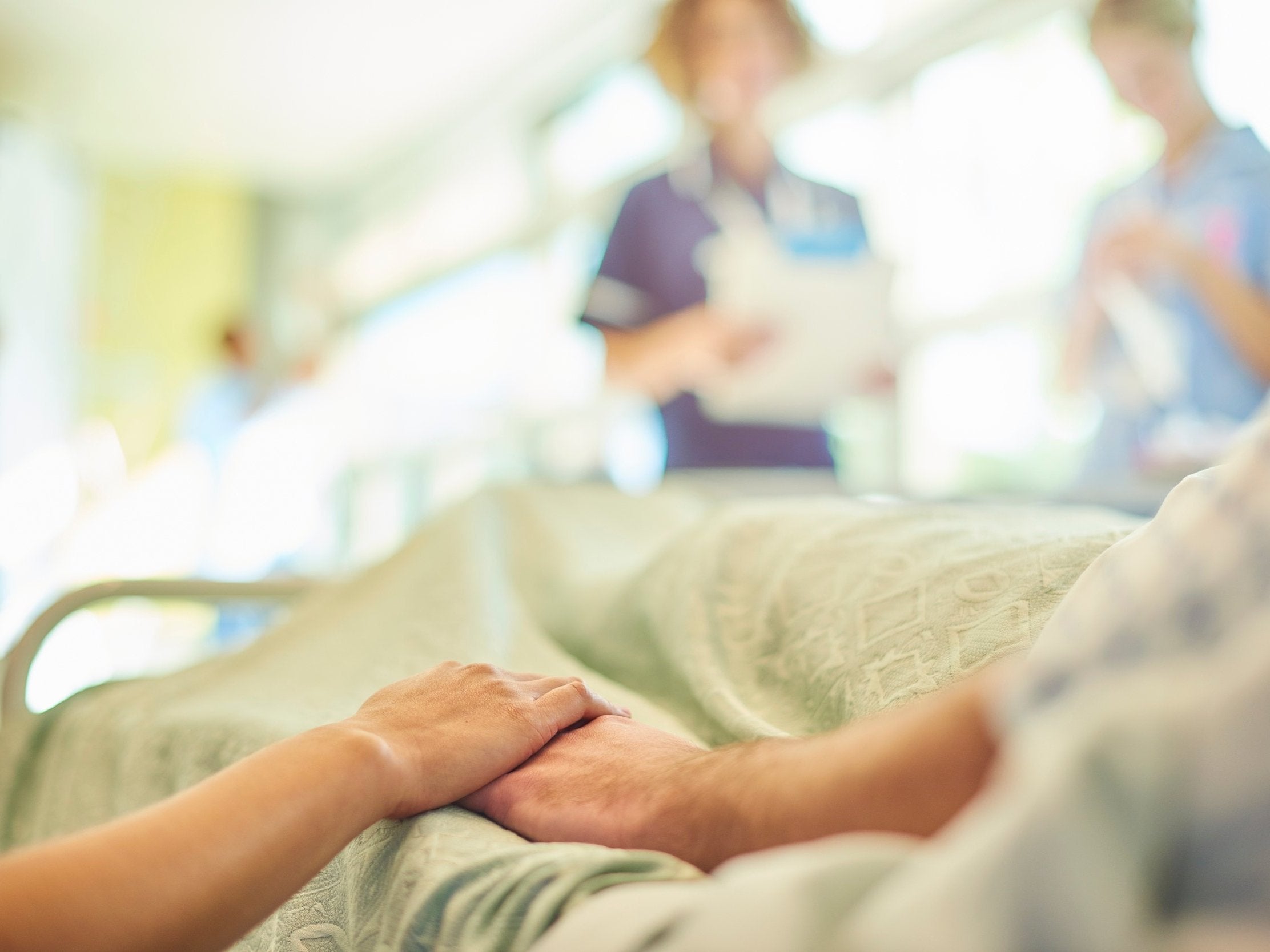Gay and transgender women have lower cancer survival rates, study reveals
LGBT+ women more likely not to have health insurance, as well as not have a personal doctor, avoid medical care due to costs, and be without an annual medical visit

Your support helps us to tell the story
From reproductive rights to climate change to Big Tech, The Independent is on the ground when the story is developing. Whether it's investigating the financials of Elon Musk's pro-Trump PAC or producing our latest documentary, 'The A Word', which shines a light on the American women fighting for reproductive rights, we know how important it is to parse out the facts from the messaging.
At such a critical moment in US history, we need reporters on the ground. Your donation allows us to keep sending journalists to speak to both sides of the story.
The Independent is trusted by Americans across the entire political spectrum. And unlike many other quality news outlets, we choose not to lock Americans out of our reporting and analysis with paywalls. We believe quality journalism should be available to everyone, paid for by those who can afford it.
Your support makes all the difference.Gay and transgender women in America are more likely to have lower cancer survival rates, a new report has found.
The study, published in Cancer, found women who are sexual minorities were more likely not to have health insurance, as well as not have a personal doctor, avoid medical care due to costs, and be without an annual medical visit.
In contrast, men of all sexual orientations had similar access to care in respect to insurance status, having a personal doctor, and annual visits.
LGBT+ women’s shortfalls in access to care meant they were more likely to experience poor physical quality of life, poor mental quality of life, and more difficulty concentrating than straight women.
In men, deficits in access to care were linked with a higher likelihood of difficulty concentrating among LGBT+ men than straight men. On top of this, sexual minority status increased the likelihood of poor mental quality of life in men.
Dr Ulrike Boehmer, one of the report’s authors, said: “Our study shows that sexual minority women suffer from poor access to care and that this is linked to worse quality of life. Since poor quality of life is linked to worse cancer survival rates, this calls for policy changes to improve access to care for sexual minority cancer survivors.
“The study’s findings also point to an opportunity for clinicians to address difficulties in access to care with patients during treatment discussions, or at the completion of cancer therapy and during follow up visits. Clinicians who are aware of these disparities and address them during clinic visits may have an impact on sexual minority women’s survival rates, which are lower than their heterosexual counterparts’ rates.”
Researchers called for the need for improved access to medical care for cancer survivors who are sexual minorities – in particular, female survivors.
Among women who have survived cancer, poor access to care is more strongly linked to poor quality of life among LGBT+ cancer survivors than heterosexuals.
Researchers noted that access to quality medical care is critical to the long-term health and well-being of cancer survivors.
While evidence from non-cancer-related studies indicates sexual minorities – including lesbian, gay, bisexual, or other non-heterosexual identified individuals – have worse access to care, earlier studies have not examined the issue among cancer survivors.
Dr Boehmer and Jessica Gereige, along with their colleagues at Boston University School of Public Health, looked at four years of Behavioural Risk Factor Surveillance Survey data on US men and women who reported a history of cancer to gauge LGBT+ cancer survivors’ access to care and quality of life.
Among the 70,524 cancer survivors, some 1,931 identified themselves as being sexual minorities.
Dr Gereige said: “While we have extensive cancer surveillance in the US, sexual minority cancer survivors are excluded from surveillance, which means we have very limited information about this group. This study, therefore, provides much-needed information about sexual minority cancer survivors.”
This comes after a recent study in the UK found lesbian and bisexual women are at greater risk of being overweight than heterosexual women.
Researchers at UCL and the University of East Anglia found gay men are less likely to be overweight than their straight counterparts and are instead more at risk of being underweight.
The study, published in the Journal of Public Health, was believed to be the first to investigate the relationship between sexual orientation and body mass index (BMI) using population data in the UK. Researchers said the findings support the view that sexual identity should be deemed a “social determinant of health”.
Lead researcher Dr Joanna Semlyen said: “We know that sexual minority groups are more likely to be exposed to psychosocial stressors, which impacts on their mental health and their health behaviours such as smoking and alcohol use, and which may influence their health behaviours such as diet or physical activity.
“These stressors include homophobia and heterosexism, negative experiences that are experienced by the lesbian, bisexual and gay population as a result of their sexual orientation identity and are known to be linked to health.”
The academic, from the University of East Anglia’s Norwich Medical School, said the study’s findings were “worrying” because being overweight and obese are known risk factors for a number of conditions including coronary heart disease, stroke, cancer and early death.
She noted sexual orientation was not recorded in health surveys until 2008 – meaning that until recently it has not been possible to determine health inequalities affecting lesbian, gay and bisexual people.
Join our commenting forum
Join thought-provoking conversations, follow other Independent readers and see their replies
Comments